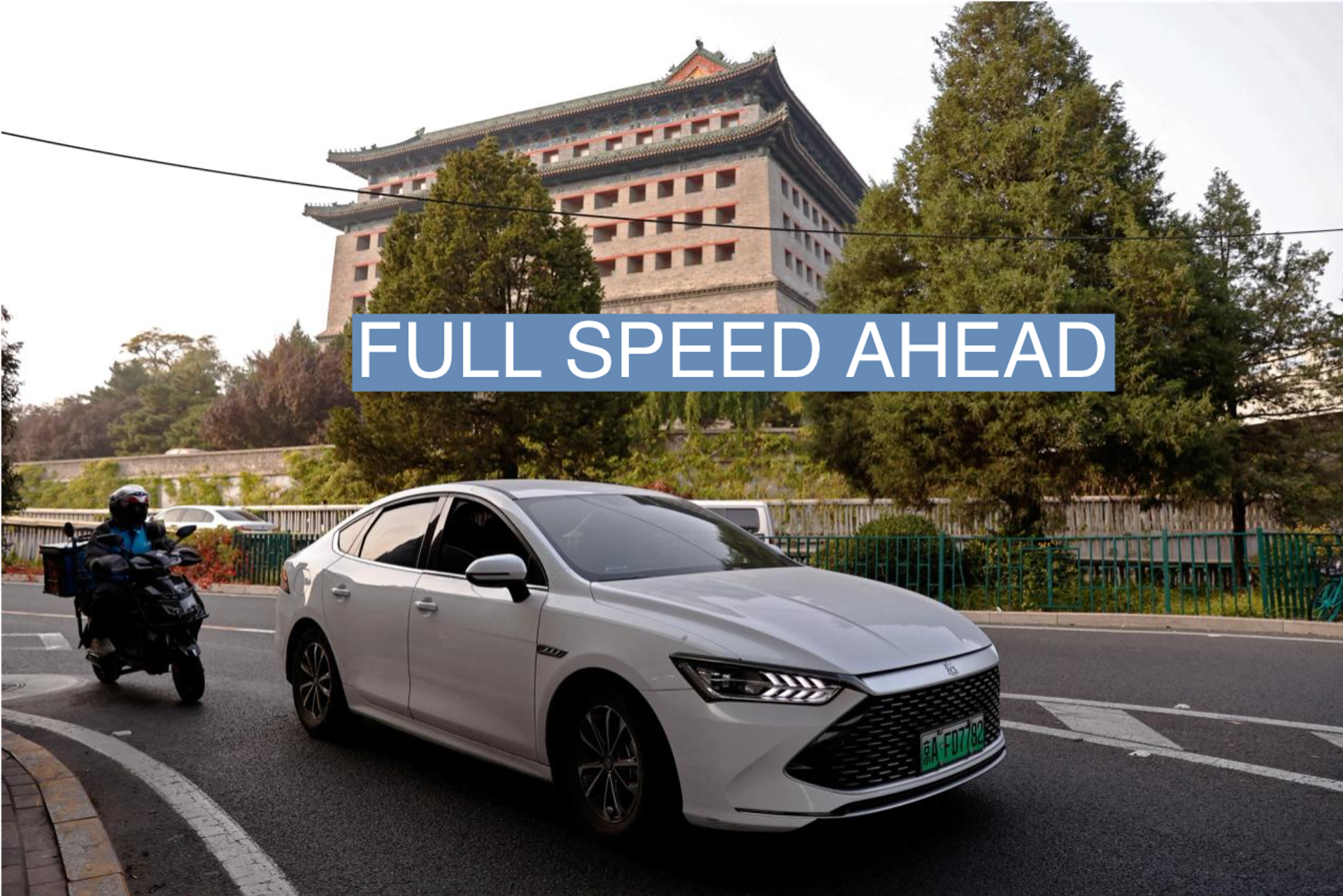The News
China’s BYD has overtaken Tesla as the world’s biggest electric vehicle seller. In the final quarter of 2023, BYD outsold Tesla in EV cars by 526,000 to 484,000 in yet another sign of China’s growing clout in the automotive industry.
Chinese automakers have long dominated the huge domestic market, but the country now rivals Japan as the world’s biggest car exporter, having overtaken Germany, South Korea, and the U.S. in recent years.
SIGNALS
State subsidies and low-cost batteries boost Chinese EV sector
China’s rise as an EV superpower is underpinned by generous government subsidies so Chinese EV companies can sell cars at a loss without breaking a sweat. They’re also world leaders in producing low-cost batteries, which make up about 40% of the cost of a vehicle. China’s battery leadership is not going anywhere: By 2030, China is estimated to have 69% of global battery-production, enough to make 90 million cars a year, compared to Europe and the U.S., whose predicted global capacity of 14% each will suffice for 19 million vehicles each in a year, the Economist reported.
European car manufacturers look on nervously
European manufacturers are predicted to lose out on over $7bn a year in lost profits by 2030 due to the rise of Chinese-made EVs. Renault’s CEO recently said that Chinese EV makers are “a generation ahead of us.” China’s EV exports have risen by a staggering 851% over the past three years, mainly to Europe. The EU is weighing how to respond, and has started an investigation into Chinese government subsidies to EV makers to assess whether to impose stricter tariffs on the growing number of Chinese EVs entering Europe. European car manufacturers are divided on the question of tariffs, with the German car industry warning that China could retaliate with trade restrictions of its own, Euractiv reported.
U.S. seeks to hold off Chinese EVs
So far, Chinese EVs have had more luck in Europe than the U.S., where auto tariffs on China are a whooping 27.5%. The Biden administration has sought to distance Chinese companies from the U.S.′ supply chain by limiting the role they can play in supplying materials for EVs that qualify for tax credits. These regulations may make some U.S. vehicles more expensive, as reshaping the EV supply chain “requires nothing short of a complete transformation of the U.S. industrial base,” an industry insider said.

